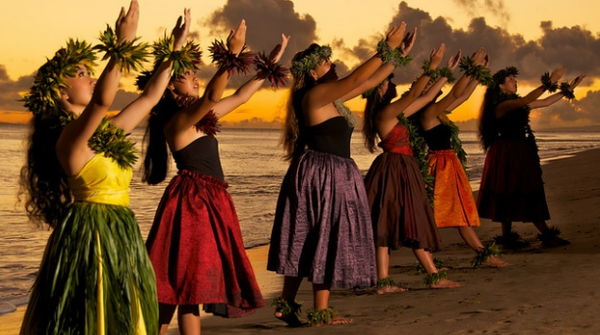When we think of Hawaii one of the most enduring images is of the colourful hula dancers but the hula is more than just a dance.
The beginnings of the hula remain a mystery but there are many Hawaiian legends that tie the origins of the dance to the goddess Pele or Laka and the hula is therefore considered a sacred dance to Hawaiians.
Usually performed with song or chanting, the hula interprets the words of the song to give meaning in a visual form. The intricacies of hula dancing involve the movement of the hands, eyes, hips and legs but it is the hands that tell the story. Stories of legends were told through this art form and it provided a means of passing down ancient Hawaiian culture. From the 1960's the interpretive dance of the hula evolved into a form of non-traditional tourist entertainment but more recently it has also been considered a contemporary art.
Requiring harmony, balance and control, every movement, expression and gesture has a specific meaning, from representing nature and the elements to listening, sailing, searching and more. The hula dancer watches their hand movements at all times and not the audience.
The spirit in which you dance is more important than perfection
The graceful hula dance moves can vary from simple to complex steps, including the Kaholo, Ka'o, Hela, 'Uwehe and Ami. The most basic moves include hips and sidestepping and the hula dancers can use their hands to communicate words or ideas, from ocean waves to palm tree sways. Gestures enhance awareness, spirituality and communication. These are our favourite gestures:
Aloha
Ocean Waves
Rising Sun
Body
Smile
Flower
Give
Love
Here is a video demonstrating the beauty of hula hand gestures. There are some easy to follow videos available on YouTube with basic instructions in the hula dance. A great activity for your tweens!

